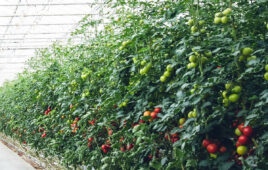Farm to table is a movement in which club and resort chefs source ingredients from farmers, ranchers and purveyors located close to the property.
As more club and resort chefs work to improve the quality of the foods they prepare, relationship with farmers and suppliers are flourishing. This movement—called “farm to table”—encourages and brings awareness to purchasing and serving locally grown and sourced ingredients including meats, cheeses, fruits, vegetables and more.
Farm to table has seen widespread growth in country clubs and resorts over the past decade. It’s become a buzzword with members, guests and chefs alike. While hundreds of club and resort chefs have relied on local farmers for years, others are in the process of nurturing new and closer relationships with local growers to better connect members with their meal’s source.
The farm to table movement has progressed in tandem with the changing attitudes of members and guests regarding healthier eating habits, food freshness, and supporting local communities. It plays well with artisan and specialty ingredients as well as seasonality. Advocates suggest locally sourced foods yield significantly more flavor than the same products shipped from overseas.
Many country clubs and resorts stress the importance of supporting smaller, locally owned farms as part of their overall community involvement. Ideally, true farm to table operations maintain a direct line of communication with the growers and producers who grow the foods themselves. Congruent with the farm to table movement is the growing desire of member and guests to know where their food came from and how it made its way to their plate. Many club and resort chefs will satisfy this need by listing farms on menus as well as by training servers and cooks to share the “story” of a product with members and guests during service.
The farm to table movement has been popularized by a multitude of celebrity and influential chefs including Alice Waters and Thomas Keller. Since the early 2000s, there has been a significant increase in the number of clubs and resorts supporting the farm to table movement. Many are more actively promoting this messaging in member communications, too.
Farm to table is not without its challenges though. While often yielding a fresher product, farm to table is not something that can be easily adapted to all climates. Locally grown ingredients can also be more costly. But for many clubs and resorts, where food costs tend to run higher, this is not as big of a challenge.




